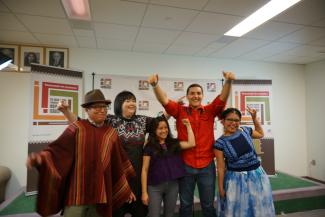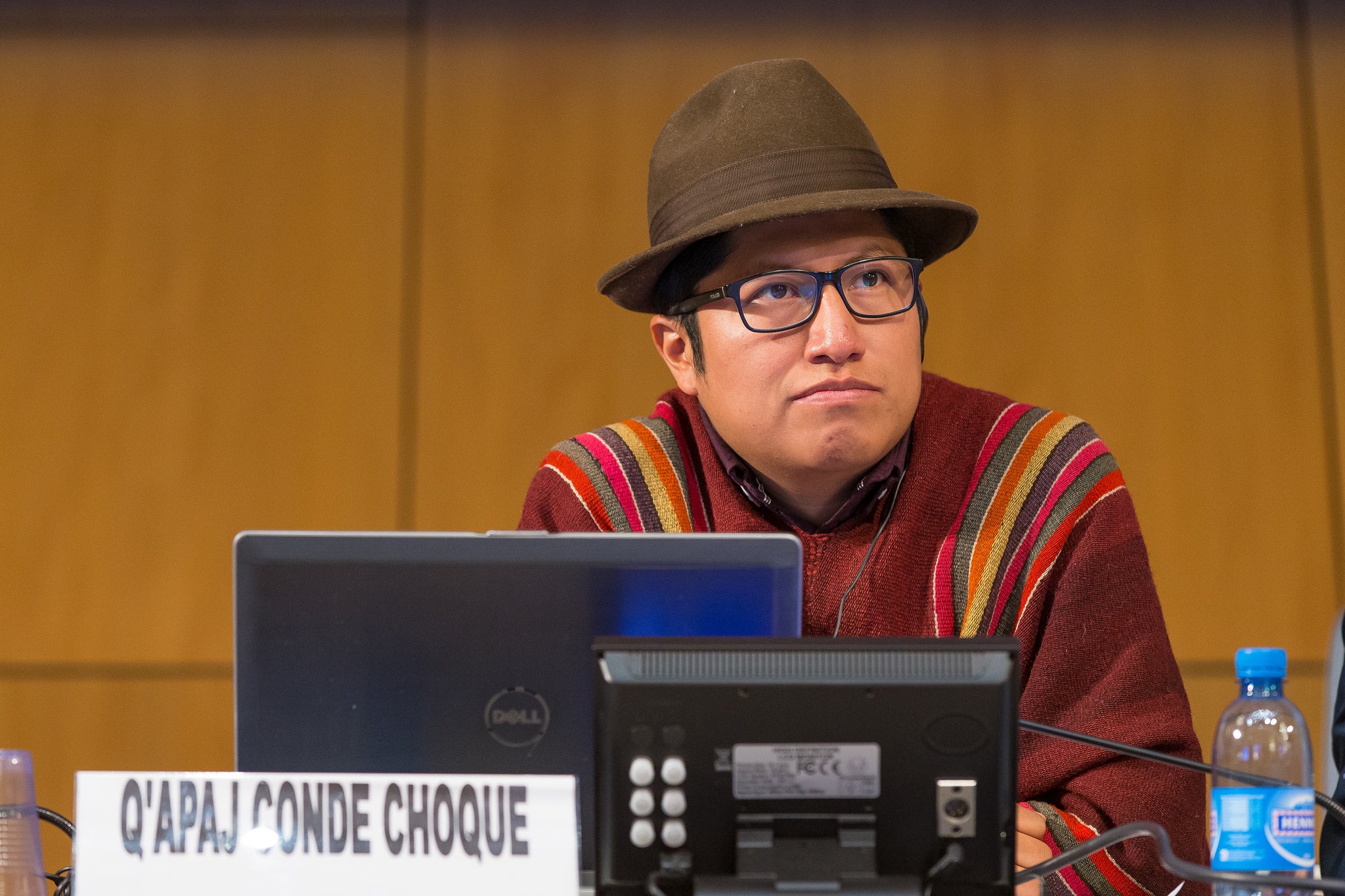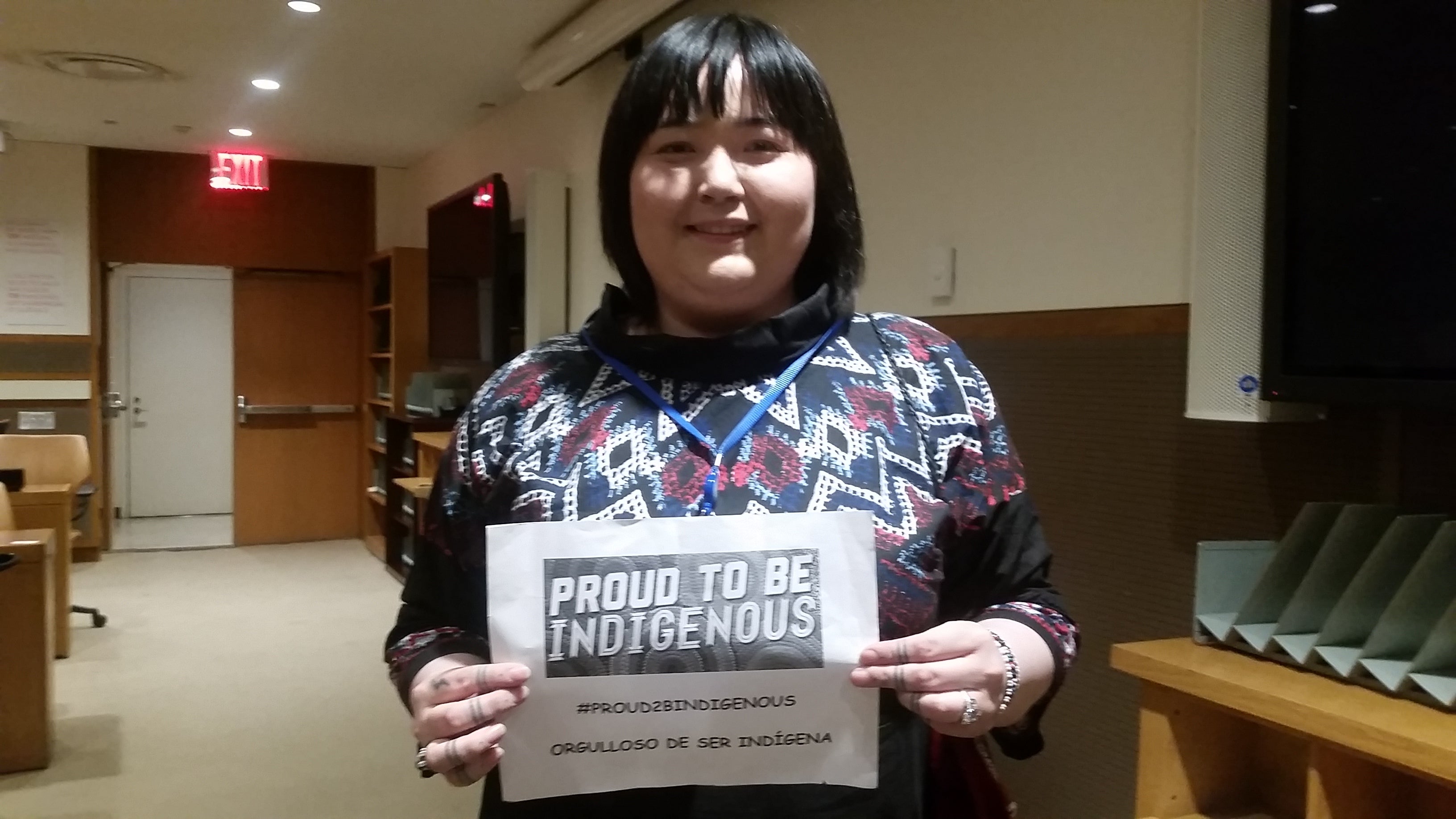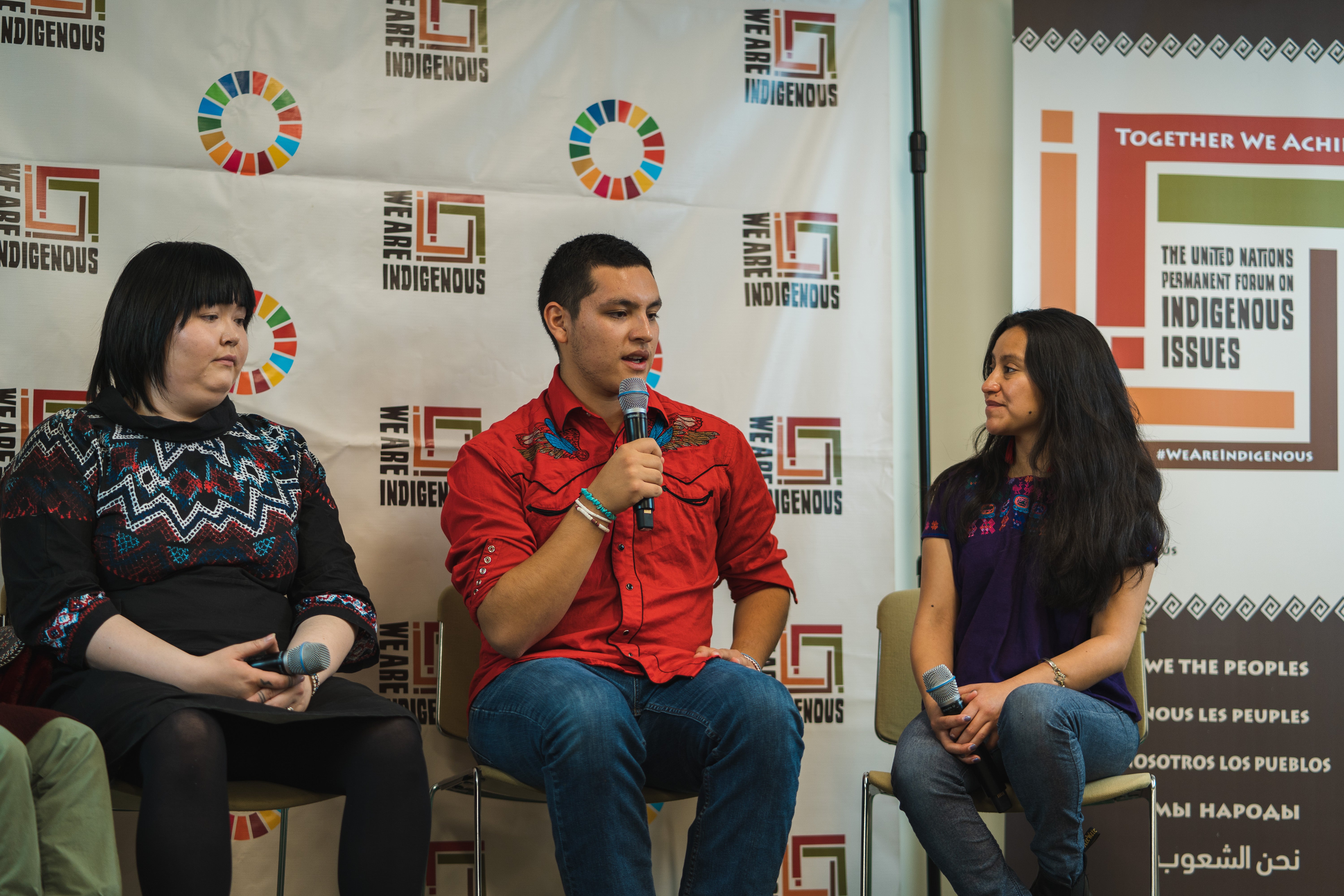
Members of the Indigenous Youth Caucus were interviewed last April by Andrea Ixchiu (Maya K’iche, Guatemala), representative of the Latin American Council for Communication and Cinema of the Indigenous Communities, at the Indigenous Media Zone of the UN Permanent Forum on Indigenous Issues. The following are excerpts of the interviews.
Q’apaj Conde - Aymara from Bolivia (Global Indigenous Youth Caucus Co-Chair)

The Global Indigenous Youth Caucus is a global youth platform. The main objective is to promote the participation of Indigenous youth in international fora. Since the first session Indigenous youth have gathered together, but it was not until 2008 that we were recognized by the UN Permanent Forum. We have since hosted preparatory meetings before the session and capacity building. Lately, we have expanded to the three mechanisms that have direct mandates of Indigenous decisions in the UN. For instance, we have meetings with the UN Special Rapporteur on the Rights of Indigenous Peoples, Vicky Tauli-Corpuz. We meet with her and provide direct information on specific cases in a country. When she visits the country, we organize the youth in the country so they can meet with [her]. We also have expanded our participation in the Expert Mechanism on the Rights of Indigenous Peoples. Last time we were able to host an afternoon caucus and draft a statement of recommendations.
I am also part of the Red de Jóvenes Indígenas de Latin America, which is a regional network. The focus of the network has been on health, agriculture, and participation. One of the issues in the regions is that we don’t have access to sexual education from an intercultural perspective. Indigenous people begin sexual activity earlier in life, causing earlier motherhood, which has been a problem in particular for women.
This was a great year for the Global Indigenous Youth Caucus—it was our 10-year anniversary as a working group at the Permanent Forum. We face so many challenges at the local level and someone needs to take action. We echo the struggles [of our elders], learn from them, and want to learn from them. This is key for us. We want to overcome the situation, the discrimination, and the poverty we face. Of course, we need funding and we need some jobs. Many of us are students [and] it’s volunteer work. We work late, we make the time, and we have to be connected with locals at the regional level. We have been able to realize the challenges of our parents, and once we realized that, we knew we needed to change the situation. The only way to change it is to be active and that’s what pushes us to move forward.
Our only role at the global level is to facilitate communication. The focal points are the main actors for the region. They do all the work and connect their struggles to the global level. We have a Facebook page, which is the most efficient way to contact people. We receive messages and also Tweet them. Contact your focal point and they’d be happy to engage with any group. We meet Sunday before the session and everyone is welcome.
Qivioq Nivi - Løvstrøm Inuit from Greenland, Arctic Focal Point

We have had meetings about how Arctic youth should participate when it comes to the Sustainable Development Goals. We have a vast region where we have brought Inuit and Sami and we have communicated a lot, because we have very different needs with different problems to address. Mostly we facilitate information that needs to get from our communities to the global Indigenous youth caucus and make sure the voices of our people are heard internationally. We also try to make sure they understand, because UN language is on a different level that can be hard to understand. We translate it, if you will, so that people can understand and exercise their rights.
In my community specifically, it has become taboo to think of yourself as Indigenous. People have been so indoctrinated by our education system and we introduce ourselves as a modern people. We confuse ourselves into thinking that [Indigeneity] and modernity are two different things, even though they’re not. That’s a big issue, that people don’t recognize themselves as Indigenous in our country. In the Arctic region we have a lot of different issues, especially when it comes to food insecurity, mostly due to climate change. We have been one of the first people who wanted to do something about climate change for many decades.
When you’re at home in your own community it can be disheartening. You work so hard and sometimes it takes so long to see change. It’s a long process. To get that feeling of hope again, you look to each other. I felt so empowered looking to these young Indigenous people working hard being volunteers. That’s what gets you through, the inspiration from other people; not only youth but from our elders who have been doing this for centuries without giving up.
I know that for young women, we are the ones who are most marginalized. We have an obligation to be the voice of all of the Indigenous young women out there who are struggling and can’t articulate their pain and suffering. We need to translate it into recommendations and statements that can help them. We have experienced many times where we get young people that come to us with stories of things they’ve experienced and we put them into statements. It can be difficult, but we do it because it’s empowering as an Indigenous woman to be able to put it into words in such a way that people have to hear us. We are here and we will always be here. We are the mothers and the ones who will keep our communities alive in the end.
Victor Lopez-Carmen - Yaqui and Crow-Creek Sioux from the United States, North American Focal Point

I am one of three Focal Points for the North American region. My organization is the International Treaty Council. I have been participating in the Youth Caucus for four or five years. I am one of the coordinators for North America. We had our first regional meeting yesterday and we had more North American youth than we had seen before.
I have participated at the Civil Society Mechanism for Youth, which has 11 groups. I was one of the two Indigenous youth invited to determine the major youth issues around the world. The youth represented were not just Indigenous youth, but small scale farmers and fishers and urban youth. The issue that we determined in that meeting in Rome was that youth around the world were facing urban migration. As the world is becoming more modern, our communities are left behind and it can be difficult to find opportunities in our home. There can be issues in terms of poverty and supporting our family and sending money home. The way to help is to go to the cities. It’s an issue we deal with in our own terms and in our own community. It’s a problem around the world but especially youth in my community; we have over 50 percent of our youth leaving. One of the ways I am trying to keep youth in our community is to develop clinics. It is difficult for people in our communities to attain health care. This is an important aspect. Why would a parent want to raise a child in a community with no health care? We need to safeguard our community and it is something I have been working on.
The elders are a big part of this. It was inspiring the first time I came to learn everything they had to go through for us to get in this room. In the 1920s during the League of Nations, there were two chiefs who came after they heard about this meeting. They said, “We’re nations too.” But they weren’t even let into the UN building, not even to where the gift shops are. The fact that we are sitting in this room shows that we have come a long way, but we have a long way to go. That is something that inspires me to get involved in this movement. We need people on the ground, we need people in our communities. We also need people within these systems. A lot of people say, “don’t participate, we need groundwork movement.” I agree ground movement is important, but these people will make decisions that affect our livelihoods at these meetings and we need a voice here too. That’s one thing the Global Indigenous Youth Caucus has been trying to achieve for youth voices in these discussions. They are often left out of these developing priorities for our nations, but we will inherit these decisions. We need to be here to determine our own priorities to have a stake in these discussions.
Connect with theYouth Caucus on Facebook: facebook.com/GlobalIndigenousYouthCaucus.
Photos by Nati Garcia and Jamie Malcolm-Brown.
Main Image: Members of the Global Indigenous Youth Caucus in a celebratory moment.
